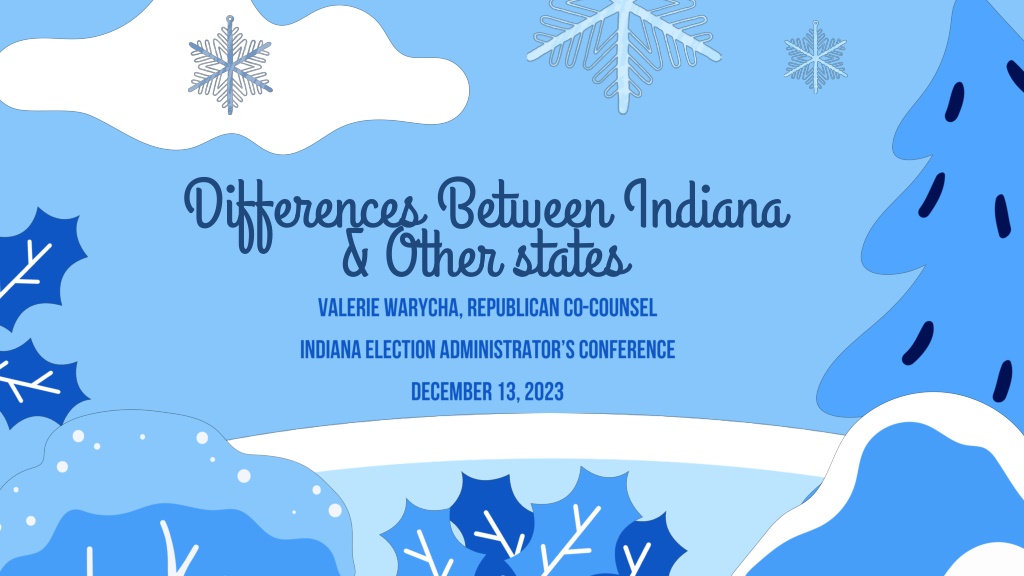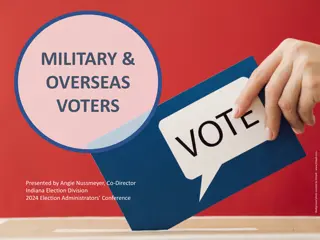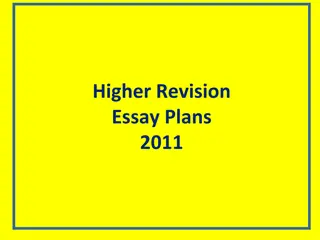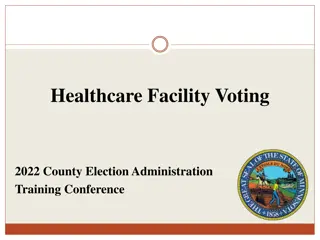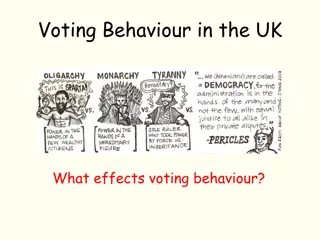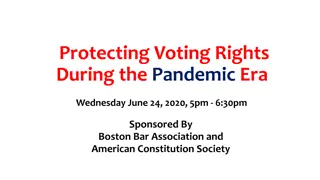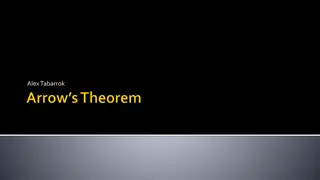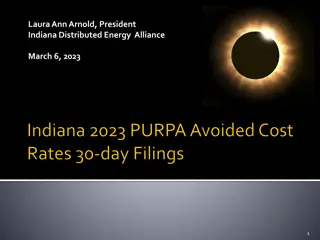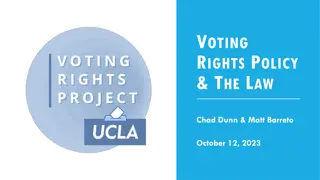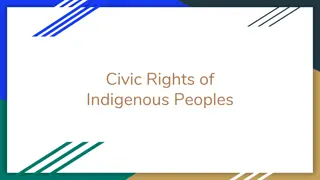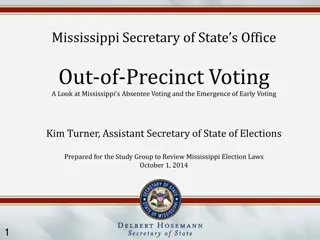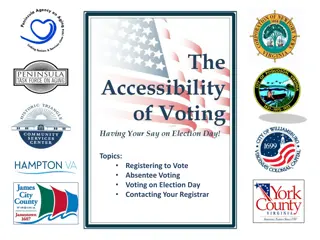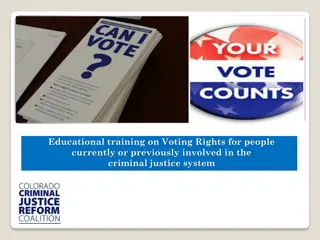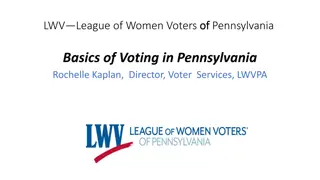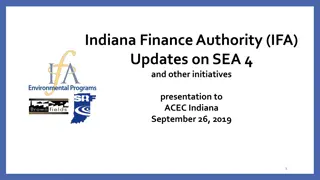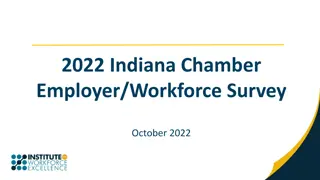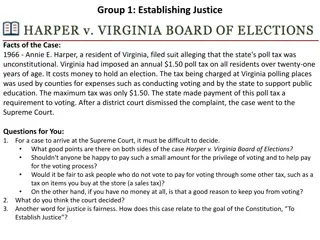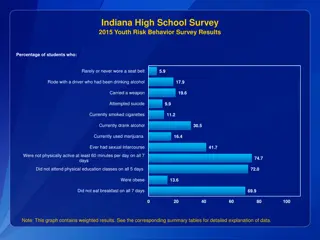Voting Laws and Practices in Indiana
Indiana has unique laws governing ballot questions, recalls, runoffs, party registration, and voter registration. Unlike some states, Indiana does not allow initiatives or recall elections, and it does not utilize runoffs or party registration. Voters must register prior to elections, and the state does not offer same-day registration. Understanding these laws is crucial for residents participating in the voting process in Indiana.
Download Presentation

Please find below an Image/Link to download the presentation.
The content on the website is provided AS IS for your information and personal use only. It may not be sold, licensed, or shared on other websites without obtaining consent from the author.If you encounter any issues during the download, it is possible that the publisher has removed the file from their server.
You are allowed to download the files provided on this website for personal or commercial use, subject to the condition that they are used lawfully. All files are the property of their respective owners.
The content on the website is provided AS IS for your information and personal use only. It may not be sold, licensed, or shared on other websites without obtaining consent from the author.
E N D
Presentation Transcript
Differences Between Indiana & Other states
Indiana Ballot Question Laws Referendum Initiative A law enacted directly by the voters, without being passed by the state legislature or approved by the governor. An election that allows the voters to say yes or no to a public question on the ballot. A referendum can only be put on the ballot if authorized by a state law. Indiana does not allow initiatives The Indiana Constitution requires all laws be passed by the state legislature. Article 4, Section 1 of the State Constitution reads in part: No law shall be enacted, except by bill. A county or town election board cannot print any referendum on the ballot unless the state legislature has already passed a law to permit the referendum to be on the ballot. Example: School Tax Levy or Safety Referendum The State Constitution would have to be amended before the voters could pass any initiative. (IC 3-10-9-5 | IC 36-1-3-8(a)(12))
How do I throw the dog catcher out of office? There are dogs running lose everywhere! Recalls What is a recall ? A recall means a special election held to decide if an elected official should be removed from office before the date the official s term is scheduledto end. Does Indianaallow elected officials to beremoved by recall vote? No. The Indiana Constitution permits state and local officials to be removed only in the mannerprovided bylaw. (Article 6,Section 8) There is currently no Indiana law to permit recall elections, although some other states do allow recallelections.
Runoffs Usually used if no candidate in the first round receives a majority vote (more than 50%) 2 candidates who received the most votes in the first round or received a certain portion are the candidates in the second round of voting. Not used in Indiana.
Party Registration/Open Primary Thereis noParty RegistrationinIndiana! Avoteriseligibleto voteinanIndianaprimaryiftheyarearegisteredvoter. Voters chose a D or R ballot based off the majority of candidates they voted for in the last general election orintendto voteforatthenextgeneralelection. (IC 3-10-1-6) OpenPrimary Voter ofanyaffiliationmayvoteintheprimary. ClosedPrimary Voter must beregisteredasamemberofthepartytovote intheprimary.
Voter Registration A person may register to vote once no longer incarcerated following conviction of a crime, even if on probation, parole, home detention, or community corrections. North Dakota is the only state that does not requires some form of voter registration. There is no same day registration in Indiana. Indiana requires voters to register 29 days prior to election day. Indiana requires all voters to register to vote.
Voter Registrations & Convictions Indiana law only prohibits those who have been convicted of a crime and are currently serving their sentence from voting. If awaiting trial, can vote. Graphic from standupamerica.com
Vote by mail Indiana allows voting by mail if you meet one of the reasons needed to vote by mail such as out of town on election day or over 65. California, Colorado, Hawaii, Nevada, Oregon, Utah, Vermont, and Washington Nebraska and North Dakota Alaska, Arizona, Florida, Kansas, Maryland, Missouri, Montana, New Mexico, and Wyoming Idaho, Minnesota, New Jersey, and New Mexico
Rank Choice Voting 1.Voters rank the candidates for a given office by preference on their ballots. 2.If a candidate wins an outright majority of first-preference votes (i.e., 50 percent plus one), he or she will be declared the winner. 3.If, on the other hand, no candidates win an outright majority of first-preference votes, the candidate with the fewest first-preference votes is eliminated. 4.All first-preference votes for the failed candidate are eliminated, second- preference choices on these ballots are then elevated to first-preference. 5.A new tally is conducted to determine whether any candidate has won an outright majority of the adjusted voters. 6.The process is repeated until a candidate wins a majority of votes cast.
Deceased Voters A voter who votes early and dies before election day will not have their ballot counted in Indiana. Indiana Constitution says must be a citizen to vote. Dead people are not citizens and therefore, cannot vote. A vote cast by a deceased voter does not invalidate an election (IC 3-11.5-4-17)
Drop Boxes Drop boxes that are not under direct control of the county election board are prohibited by Indiana law. If there is a drop box for another office (ex property tax payment deposit box) in the courthouse, you must put a note saying, Do not deposit a voted absentee ballot into this box or container. The absentee ballot will not be counted. IC 3-11-10-24 (f) and (g)
Drive-Thru / Curbside Voting Drive-thru or curbside voting is not permitted in Indiana. All voting locations must be accessible. All voting procedures must be authorized by Indiana law. There is no HOME RULE in election law (IC 36-1-3-8(12))
Pre-Scanning Ballots NO equipment has been certified by the Indiana Election Commission to pre-scan. Indiana Election Commission Advisory Opinion 2022-8 Advises each county election board that until the Indiana General Assembly amends IC 3-11.5-4-6 or otherwise amends Title 3 of the Indiana Code to authorize the scanning of optical scan absentee ballot cards before election day, which is prohibited by IC 3- 11.5-4-6, optical scan absentee ballot cards shall not be scanned before election day.
Private Funding CANNOT accept private donations to prepare, administer, or conduct elections or to pay employee staff or temporary employees . MAY receive funds from the state or federal government to prepare, administer, or conduct an election. IC 3-5-3-1
